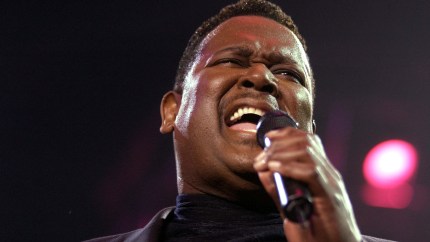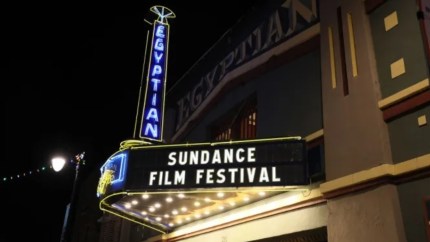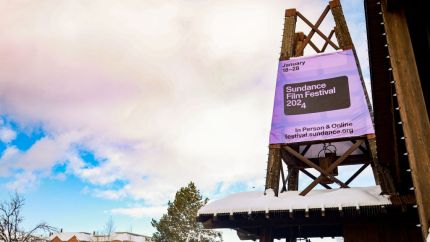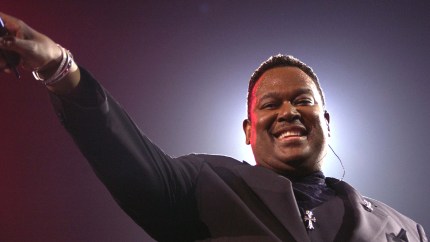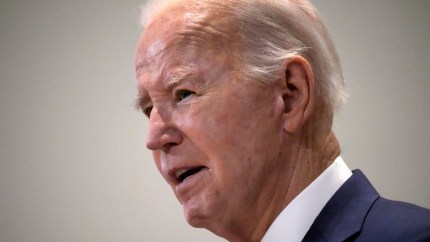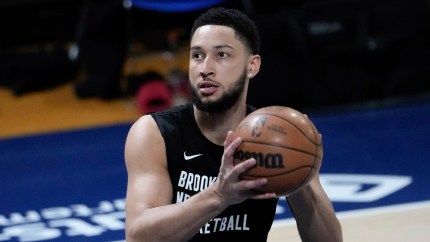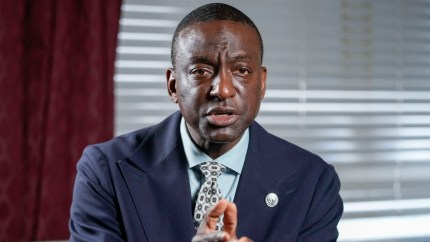Fatherhood and forgiveness explored in Sundance competition
“Daughters” and “Exhibiting Forgiveness” both examine similar themes of loss, love, and paths taken (or not) to forgiveness.
What does it mean to forgive, truly? And what does it look like to forgive not just anyone, but our fathers? As the 40th Annual Sundance Film Festival comes to a close, these questions linger, remaining top of mind amidst an impressive slate of debut films.
The festival once again brought audiences to Park City, Utah, last week, premiering brand new titles under the program’s various competitions and lineups. While theGrio was in attendance for numerous festival premieres, for two projects that stood out to us, fatherhood and forgiveness seem to be connective tissue, thematically binding vastly different films that examine the often-complicated bonds we have with our fathers, and the paths (if any) we may find in forgiving them.
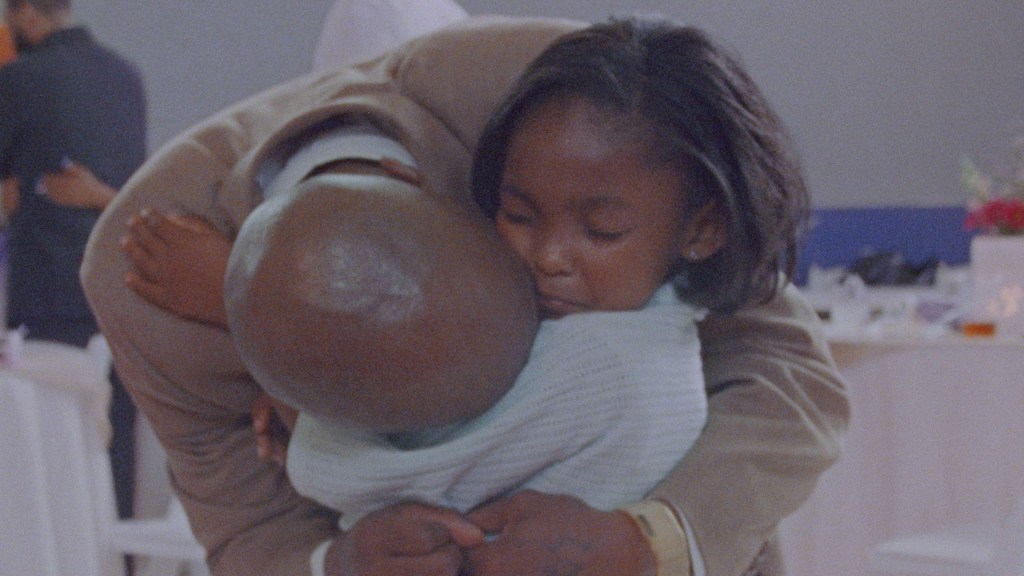
As the title suggests, Titus Kaphar’s directorial debut “Exhibiting Forgiveness” literally puts absolution on full display, as a world-renowned painter Tarrell (played by André Holland) reexamines his childhood as he finds himself suddenly face-to-face with his estranged father La’Ron (John Earl Jelks). Literally working through his trauma (in his real life and on the canvas), he painstakingly trudges through the grief of his lost innocence, all as he comes to terms with his own duties and responsibilities as a father.
Stirring and enthralling, the U.S. Dramatic Competition entry flashes back to Tarrell’s childhood, with devastating vignettes uncovering how a young boy was forced to deal with his father’s battle with addiction and abuse toward his mother. While testing the audience’s understanding of what actions may be deemed “forgivable,” the film captures the often nonlinear road to healing and how true forgiveness does not look the same for all of us.
Kaphar, an acclaimed contemporary painter himself, tells a fictional story inspired by his own life, though not a beat-by-beat retelling. “It started with experience, the experience led to writing, the writing led to paintings, the paintings led to the script, and then the film started making more paintings,” he explained to the audience following the premiere, detailing the “cycle” of his own journey to healing as he created this story.
“Daughters,” a selection from the documentary competition that took home both the Festival Favorite award and the Audience award, brings audiences into the real lives of four daughters and their incarcerated fathers as they prepare for a daddy-daughter dance, organized by Girls for a Change’s “Date with Dad” program. Taking place in a correctional facility, the “Date with Dad” dance reunites the fathers with their daughters for a prom-like event. Natalie Rae and Angela Patton’s film delicately investigates its subjects, allowing the often-murky, awkward, passionate and melancholic nature of forgiveness to bleed through every frame as the fathers work with life coaches and daughters speak through their own feelings to the camera.
Recommended Stories
Each daughter and father have their own story in the film. Yet, as ages and circumstances vary, situations remain the same, allowing both the groups of daughters and fathers to bond with their contemporaries over the planned reunion, time lost, and what they hope to attain from seeing their loved ones once again.
Take Aubrey, one of the youngest subjects and the first daughter we meet in the film. As the 5-year-old breaks down her father’s (Keith Sweptson) sentencing to the audience at the top of the doc (“First it was nine years, then the police took away two and it was seven”), we see, at a granular level, just how devastating the physical separation of a father and their child can be.
The film comes to a quiet crescendo about halfway through when we finally arrive at the Date with Dad dance. Incredibly patient every step of the way, Rae and Patton’s project takes every moment it needs to capture each reunion, resting on each unflinching stare, tender embrace and eventual tearful goodbye.
The marvelous nature of healing is on full display as we watch Aubrey (again, at 5 years old) guide her own father through his own complex feelings, pridefully running through her times tables, gracefully showing off her dance moves and eventually, pleading with him to “not say goodbye,” but “see you later.” Holding him close as the dance begins to end, we bear witness to the often quiet nature not only of forgiveness but in taking ownership, as Keith tells Aubrey it’s not her fault “that Daddy went away.”

By shining such a potent light on fatherhood, both films can’t help but also tell us plenty about motherhood. Take Aunjanue Ellis-Taylor’s Joyce in “Exhibiting Forgiveness,” who imbues the film with heart and passion as she demands much of the father of her son, La’Ron. As she arranges their initial reunion, Joyce gently pushes both the loves of her life together, equal parts protecting and challenging them as she wrestles with her own part she has played in their story.
The mothers seen in “Daughters” are also given the most delicate of examinations, as their selflessness, like Joyce’s, is given its proper time in the spotlight without leaning too far into saccharine. In one particularly powerful scene, the mothers are coached as they prepare their daughters for the dance, and are told just how important it is that they agreed to participate in the program in the first place, while acknowledging the complicated feelings they are allowed to have for their children’s fathers. While many hope for “truth” and successful steps forward at the dance for their children’s sake, the documentary (as well as Kaphar’s film) excellently highlights the often-untold mother’s perspective in narratives surrounding fatherhood.
So, what does forgiveness ultimately look like? Is it complete and total absolution? Full setting of boundaries and protections of peace? Something in-between? Can you forgive conditionally and still heal? Both films masterfully present the various paths offered to us, without boldly declaring any as the one true solution. Perhaps, by having these examples so brilliantly portrayed on film, we can begin to understand and make peace with our own histories, allowing the sunlight to bleed through the dark parts of our past, making way for something new.
Never miss a beat: Get our daily stories straight to your inbox with theGrio’s newsletter.
